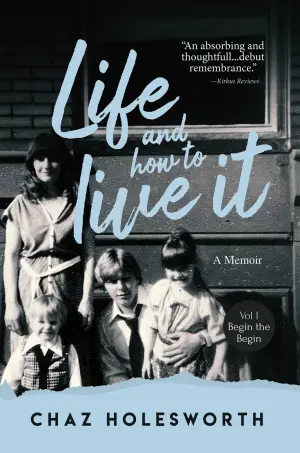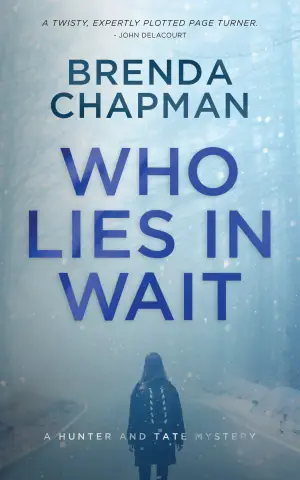Many people throw the terms “author” and “writer” around as if they are interchangeable. However, they have distinct meanings and implications within the literary world. An author is someone who creates a unique piece of work, while a writer may work on a variety of written content that may or may not showcase their original ideas.
To simplify, the essential difference centers around ownership. An author owns the content they create, often providing a singular vision. A writer may contribute to someone else’s project, crafting text but not necessarily owning the final product.
Table of Contents
Defining the Terms: Author and Writer
Author Defined
An author is typically someone who has created a narrative or a body of work that articulates their thoughts, ideas, stories, or research. This role encompasses not just the act of writing, but also a sense of ownership and creative input. Authors generate original content, whether it be a novel, a poem, an academic paper, or a screenplay.
For instance, J.K. Rowling is an author because she created the Harry Potter series, a definitive work with a unique identity that she entirely controls. Her specific voice, ideas, and characters belong to her alone.
Writer Defined
A writer, on the other hand, is a broader term that applies to anyone who writes. Writers include copywriters, content creators, journalists, and more. While some writers do create original works, many are employed to write on behalf of others or follow strict guidelines and formats.
For example, a copywriter tasked with creating product descriptions for an e-commerce site isn’t necessarily adding personal flair to the content. They’re shaped by the client’s requirements and branding guidelines, making them more of a hired wordsmith than a creator in their own right.
Ownership and Creative Voice
Authority in Content Creation
One significant distinction between authors and writers lies in ownership. An author maintains complete creative authority over their work. This includes the ability to dictate tone, narrative flow, and subject matter.
Let’s consider George Orwell and his novel “1984.” As the author, he holds the rights to both the content and the creative decisions behind it. Orwell’s specific lens on totalitarianism reflects his thoughts and critique on society, which cannot be replicated or altered by anyone else.
Conversely, a writer’s authority might be limited based on the project. For instance, a ghostwriter collaborates with an individual to pen their autobiographies. The ghostwriter does the heavy lifting but does not retain rights to the work. In this case, the individual credited as the author holds full ownership of the narrative.
Voice and Style
An author develops a signature voice or style that reflects their perspective and imagination. This individuality is often what drives their readership. Readers flock to authors like Neil Gaiman or Margaret Atwood not only for their stories but also for the distinctive voice that permeates their work.
In contrast, a writer often adopts a tone and style dictated by the project, client, or medium they are working for. When crafting corporate communications or blog posts, a writer’s voice may blend into the brand’s identity rather than showcasing its unique flair.
For example, a technical writer focuses on clear, concise language to present information effectively, whereas a novelist weaves intricate narratives. Their purposes are different, and it’s reflected in their output.
Purpose and Goals
Creating Meaningful Works
Authors often have a deeper purpose behind their creations. They may aim to evoke emotions, challenge societal norms, or inspire change. By sharing personal insights or portraying imaginative worlds, authors contribute significantly to cultural discourse.
A perfect example is Maya Angelou, whose works often reflect her experiences as a Black woman in America, shedding light on essential issues through her powerful writings.
Conversely, a writer’s goals may involve achieving specific business objectives. A freelance writer tasked with generating leads through informative articles has a clear purpose: to drive traffic and conversions. While both parties produce written work, their aspirations frequently differ.
Engagement with Readers
Authors establish relationships with their readers based on shared experiences, ideas, and connections. A reader’s emotional investment often stems from the author’s ability to resonate with their audience on various levels. A novel might stir nostalgia or provoke thought, enriching the reader’s life.
In contrast, a writer may engage with audiences more transactional. Readers consuming articles or blog posts primarily seek immediate answers or entertainment rather than emotional connections.
Take a food blogger as an example. Their goal is to create tantalizing recipes that engage the audience through culinary experiences. However, unlike an author who might tell an entire tale within a novel, the food blogger focuses on delivering concise and accessible information that readers can apply immediately.
Formats and Mediums
Written Works
When discussing formats, authors typically produce manuscripts that fit into more extensive collections of literary works, such as novels, poems, or plays. Their work may undergo rigorous editing processes before publication.
On the other hand, writers may tackle an array of content forms, including articles, scripts, advertisements, and social media posts. They must adapt their skills to fit the demands of diverse platforms, each with its guidelines and constraints.
Consider the world of screenwriting. A screenwriter is primarily focused on writing scripts for films or television. The writer needs to adhere to a particular structure, pacing, and character development unique to that format, often working within the limitations set by producers and directors.
Publishing Landscape
In the publishing landscape, authors generally pursue their work through literary agents or directly with publishers, aiming for traditional publishing. Some may choose self-publishing to maintain creative control.
Writers can find work through various channels, including freelancing platforms, staffing agencies, or direct employment. Their adaptability makes writers valuable in an increasingly diverse publishing arena.
A good example might be a technical writer who creates user manuals for software companies. They may be employed full-time or work as an independent freelancer, showcasing how the writing profession thrives in various arrangements.
Work Processes and Relationships
The Author’s Journey
Authors often endure a significant journey to create their work. This may include brainstorming, drafting, and multiple rounds of revisions. Authors engage in self-reflection and creative experimentation to find their unique voice.
Consider the process of a novelist developing a series. They may spend months or years crafting an intricate plotline, fully fleshing out characters and themes before presenting it to the world. The author’s meticulous approach reflects their strong connection to their narrative.
The Writer’s Workflow
Writers often handle several projects at once, balancing different client demands along the way. They must employ effective time management skills to meet deadlines and maintain a steady workflow.
For example, a copywriter may be tasked with creating ad copy for several clients in one week. The ability to pivot quickly between different brand voices is essential, demonstrating the flexibility required in the writing profession.
Additionally, writers often require strong research skills to ensure accuracy, especially in fields like journalism or technical writing, where facts and reliability are paramount.
Collaboration and Independence
Working Solo or with Others
Authors generally work independently, relying on their vision to guide the creative process. They may collaborate with editors, but the core of their work is deeply personal and often solitary.
When J.K. Rowling wrote the Harry Potter series, she crafted a world that was entirely hers, with input from editors coming later in the process.
On the contrary, writers often collaborate and contribute to projects involving teams, such as editorial departments, marketing teams, or content strategists. Their success hinges on clear communication and understanding of the collective vision.
For example, a content strategist may work with writers to produce content for a comprehensive marketing campaign. The writer must align with the strategist’s objectives, balancing creativity within defined boundaries.
Freelance vs. Traditional
Authors may opt for traditional publishing routes or venture into self-publishing. The choice often reflects their desire for control and ownership over their work.
Writers frequently embrace freelancing, offering their skills to various clients who may need assistance across multiple projects. Whether it’s writing content for a website or crafting social media posts, the variety of work available is appealing to many.
The freelance landscape enables writers to choose which projects align best with their interests, giving them a measure of independence, though it may lack the security associated with traditional employment.
Final Thoughts
Navigating the distinction between authors and writers is essential in comprehending the nuances of literary creation. While both play critical roles within the literary realm, understanding their unique characteristics allows for a richer appreciation of the written word.
Additional Information
When it comes to the world of literature, the terms “author” and “writer” often get tossed around interchangeably, but they’re not the same.
- An Author Creates the Content: An author is the mastermind behind the original ideas, themes, and characters in a narrative. They craft the story from scratch, whereas a writer often takes those ideas and puts them into words or formats decided by someone else.
- Writers can be Authors, but not all Authors are Writers: Some authors have little interest in writing their books. They may dictate their ideas to a ghostwriter or use collaboration to bring their vision to life.
- Different Skill Sets: While both roles require strong communication skills, an author may focus more on storytelling and conceptualization, while a writer often hones in on structure, grammar, and style.
- Market Demand Influences Roles: The publishing industry sometimes blurs the lines. An author may publish a book under a pseudonym, creating a new identity to experiment with different genres or styles.
- Authorship Rights: Authors usually retain more rights over their work compared to writers, especially if they’re hired to write for someone else. This means they can control how their stories are used in adaptations, sequels, and other media.
- Quantity vs. Quality: Some writers are prolific, churning out multiple pieces in a year, while authors may spend years perfecting a single manuscript. The depth and research involved in authoring a book often slow the process down.
- Influence of Technology: Digital platforms have reshaped the landscape for both authors and writers. Many authors now self-publish, taking on both roles, while writers can find freelance gigs through content mills or direct clients.
- The Role of Editors: While an author might send their manuscript to an editor for refinement, a writer typically works closely with an editor throughout the writing process to enhance the text and align it with the intended audience.
- Names on the Cover: In traditional publishing, the author’s name on the cover can elevate a book’s status. It’s not just a name; it’s a brand. Writers, on the other hand, often remain behind the scenes, highlighting the author’s vision rather than their own.
- Community Connections: Authors often seek community engagement to build their reader base, attending events and literary festivals, while writers may network primarily for job opportunities and collaborations with editors, agents, and publishers.
Frequently Asked Questions (FAQs) Related to Author Vs Writer
Q. What is the main difference between an author and a writer?
A. An author is someone who creates and owns the original work, like a book or article. A writer, on the other hand, is a broader term that refers to anyone who writes, including copywriters, technical writers, and more.
Q. Can someone be both an author and a writer?
A. Yes, many people are both. An author writes their own stories or content, while a writer may also create content for others or in various formats.
Q. Do authors have to write their books?
A. Not always. Some authors collaborate with ghostwriters who help them create their books, but the author is still credited as the owner of the work.
Q. Is it necessary to publish a book to be called an author?
A. No, you can be an author simply by writing a manuscript, but publishing gives you more credibility and visibility.
Q. Can a writer be an author without being published?
A. Yes, a writer can create original works and call themselves an author, even if those works are not published.
Q. What do authors and writers share some common skills?
A. Both need strong writing skills, creativity, a good grasp of grammar, and the ability to convey ideas clearly.
Q. Is there a difference in income potential between authors and writers?
A. Yes, typically authors earn money from book sales, royalties, or advances, while writers may earn a salary or fee for their writing projects, which can vary widely.
Q. Are all authors required to market their books?
A. Not necessarily. While many authors do promote their works, some publishers take on marketing responsibilities, especially for well-known authors.
Q. Do authors need formal education to succeed?
A. No formal education is required, but many authors benefit from writing courses or workshops to hone their craft.
Q. How can someone transition from being a writer to an author?
A. Writers can become authors by developing original ideas, writing them down, and pursuing publication through traditional or self-publishing routes.
Conclusion
In the world of storytelling, understanding the difference between an author and a writer is essential. An author is the creative force behind the original ideas, while a writer translates those ideas into words. Both roles are vital in different stages of the creative process. By recognizing the unique contributions of each, we can appreciate the full spectrum of literary creation. So whether you’re an author crafting your next bestseller or a writer shaping those ideas into polished prose, your work contributes to the magic of literature.







